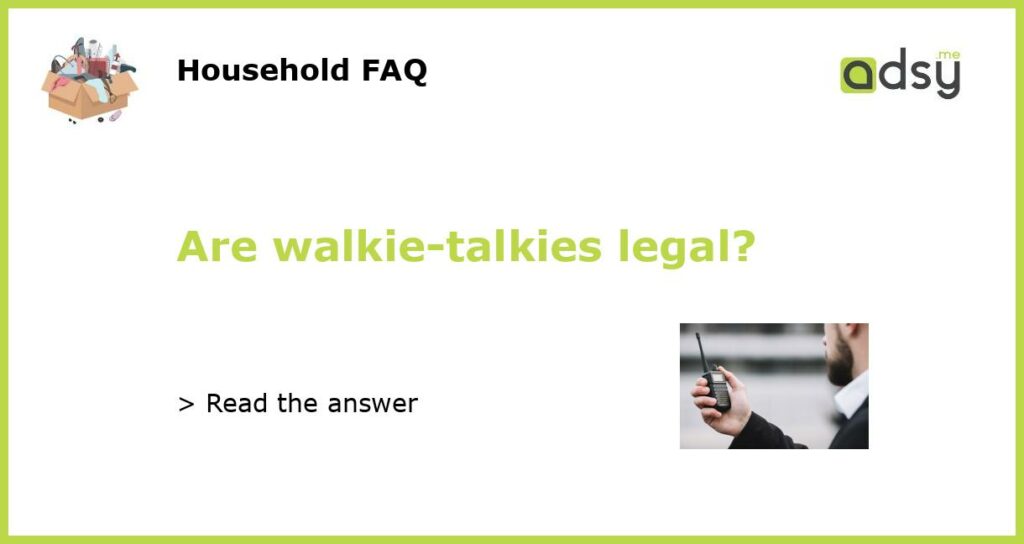What are Walkie-Talkies?
Walkie-Talkies, also known as two-way radios, are portable communication devices that allow users to transmit and receive audio signals over short distances. They work on a push-to-talk principle, which means that users have to press and hold a button to speak and release it to listen. Walkie-Talkies use radio frequencies to transmit and receive signals, making them an effective communication tool in situations where cell phone reception is limited or unavailable.
Legal Requirements for Using Walkie-Talkies
The legalities surrounding the use of walkie-talkies vary from country to country. In most countries, including the United States, walkie-talkies are legal to use as long as certain guidelines and regulations are followed. The Federal Communications Commission (FCC) in the United States oversees the use of walkie-talkies and assigns specific radio frequencies for different purposes and users.
FCC Regulations for Walkie-Talkie Users
The FCC regulates the use of walkie-talkies to prevent interference with other communication systems, such as emergency channels and licensed radio services. To use a walkie-talkie legally, you must obtain an FCC license if you plan to operate on specific frequencies designated for business or public safety purposes. These licenses are typically issued to businesses, public safety agencies, and individuals who require long-range communication capabilities.
Some walkie-talkies operate on the Family Radio Service (FRS) frequencies, which do not require an FCC license for use. FRS frequencies are limited to a maximum power output of two watts, allowing for short-range communication within a few miles. However, it is important to note that FRS frequencies are shared with General Mobile Radio Service (GMRS) frequencies, which do require an FCC license to use at higher power levels and for longer ranges.
Exceptions and Restrictions
While walkie-talkies are generally legal for personal and recreational use, there are certain restrictions on their usage. For example, it is illegal to use walkie-talkies for malicious purposes, such as transmitting false or misleading information, interfering with emergency communications, or eavesdropping on private conversations. Additionally, some areas, such as national parks or certain government buildings, may have specific regulations prohibiting the use of walkie-talkies to preserve tranquility or ensure security.
In conclusion, walkie-talkies are legal to use in most countries, including the United States, as long as users adhere to the regulations set forth by the governing authorities. It is important to familiarize yourself with the specific regulations applicable to your region and obtain the necessary licenses if required. Walkie-talkies can be a valuable communication tool for personal, recreational, and professional use, providing a reliable means of communication in situations where other methods may not be available.






